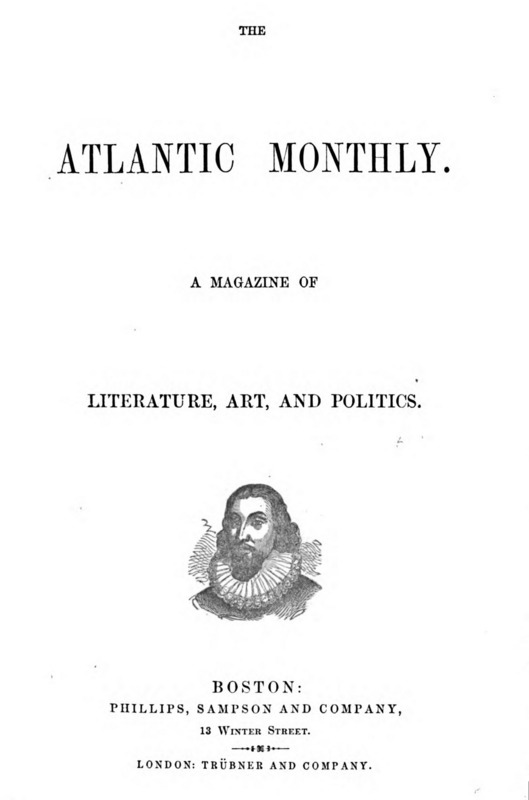The Atlantic Monthly
The Atlantic Monthly, “A Magazine of Literature, Art, and Politics,” was founded in Boston in 1857. In its first four years, the magazine was edited by James Russell Lowell, and was immediately succesful. Articles in the magazine were not signed, but contributors included Ralph Waldo Emerson, Henry Wadsworth Longfellow, Harriet Beecher Stowe, and John Greenleaf Whittier.
Boston publisher Ticknor & Fields purchased the magazine in 1859, and James T. Fields would become editor from 1861 to 1871, when he was succeeded by William Dean Howells. By the 1880s, Ticknor & Fields would become Houghton Mifflin Company, which would maintain ownership of the magazine until 1908, when it was purchased by editor Ellery Sedgwick.
In the first decade of the twentieth century, the magazine was edited by Bliss Perry, who published a wide range of opinions and perspectives. According to Sedgwick’s history of the magazine, Perry's editorial style was persitently nonpartisan, moderate, and liberal. From 1901 to 1902, he ran a series of more than fifteen articles on voter disenfranchisement and related racial issues. In editorials, he openly criticized “Anglo-Saxon domination” and U.S. foreign policy in the Philippines. He published writing by African American authors Paul Laurence Dunbar and Charles W. Chesnutt, and ran Du Bois’s critique of Booker T. Washington as a lead article in the magazine. One of Perry's first editorial decisions was to publish a series of autobiographical essays by Native American writer Zitkala Sa from January to March of 1900.
As Frank Luther Mott notes in Volume 3 of his History of American Magazines, the Atlantic Monthly “enjoyed a perpetual state of literary grace, so that for a large section of the American public, whatever the Atlantic printed was literature" (494). The magazine, now publishing 10 issues per year rather than monthly, is still active today.
